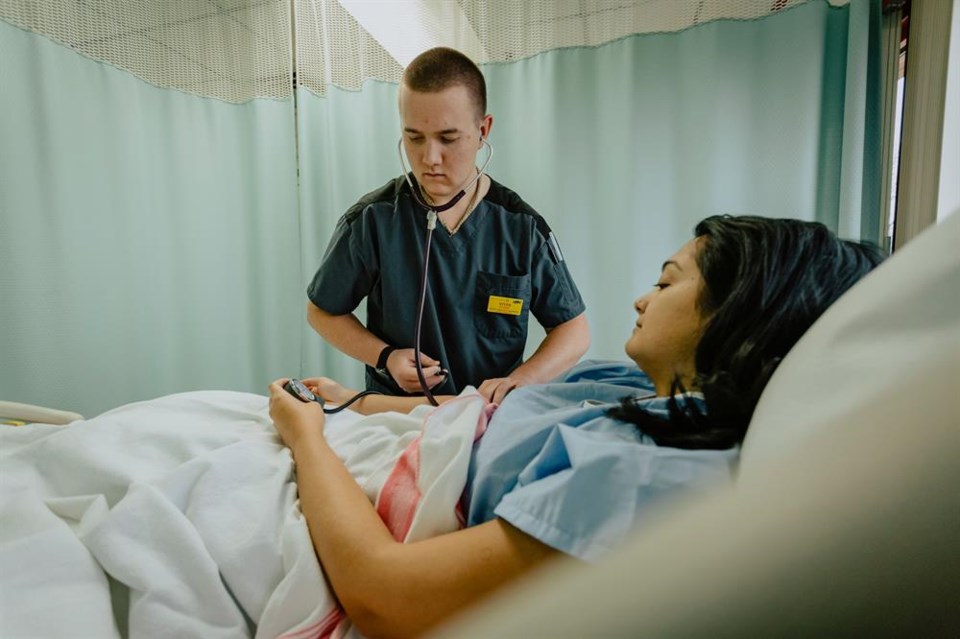The COVID-19 pandemic is testing the ability of our hospitals and clinics to handle the potential for localized outbreaks of the virus and front-line heath care workers are feeling the strain.
Retirements across the health spectrum and the increasing need more COVID-19 testing have created staff shortages and the federal government today put out a callout for retired medical professionals to return to their fields as volunteers to help the health care system through this crisis.
There is help on the way for medical centres in northern B.C. and students from the College Of New Caledonia are leading the cause, taking advantage of the opportunity for an early start on their new careers.
“There is a great deal happening at the college with the programming in terms of having done some work to accelerate the delivery and assessment of student competencies wherever possible,” said Chad Thompson, CNC’s vice-president, academic.
CNC campuses in Prince George and Burns Lake which train licenced practical nurses have a combined 18 students who have just completed the program and are now ready to utilize their skills.
Twenty-three health care assistants trained in Prince George, Mackenzie and Quesnel have begun to work in their chosen fields, and 21 medical lab students who have completed their courses are about to enter the health care system.
“We do the first two years of the baccalaureate of nursing program with UNBC and the students who are finishing off their first two years are eligible to work as health care assistants and some of them are applying to do that work,” said Thompson.
“Within the next month or so we would expect to see an additional 30-or-so students in some of the different health areas completing and ready to go out into the health care sector.”
For some students, early graduation is not possible. CNC medical radiography and sonography (ultra-sound) students have yet to finish off practicum work, which can’t be accelerated. Health care programs are bound by requirements of each of the accrediting agencies and not all students graduate at the same time. In a normal year they would graduate between April and July. COVID-19 has sped up the process.
“Some of the programs have been accelerated by several weeks, where we were able to assess and ensure students had met their competencies and were ready to practice” said Thompson. “We’ve had to be very careful where we’re not going to cut a program short and put students who aren’t ready out into the health care field.”
Personal protection equipment is in high demand in hospitals, health clinics and longterm care facilities across Canada, with some shortages reported, and some students have expressed their fears about the risk of being exposed to the coronavirus.
“It’s scary for a lot of the students,” said Thompson. “This is not something any of them expected when they signed up for the program and I’m proud of the fact they’ve chosen to pursue these careers and play a role in this critical time.”
Thompson said the pandemic highlights the need to have post-secondary health sciences programs in northern B.C.
“We know if we have these programs in the north we’re going to have graduates who will stay in the north and are going to fill these roles,” he said.
“I’m really proud of all the work done by students and faculty to make it possible to get our graduates out there and ready to do their part .. and provide that extra boost into the health care labour force at this time when it’s so desperately needed.”



